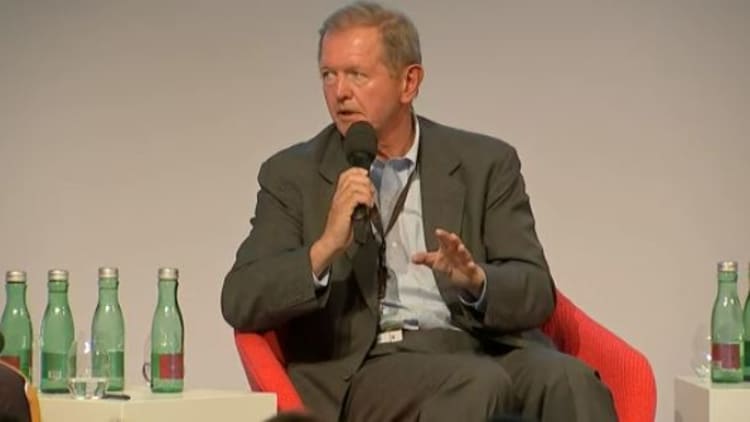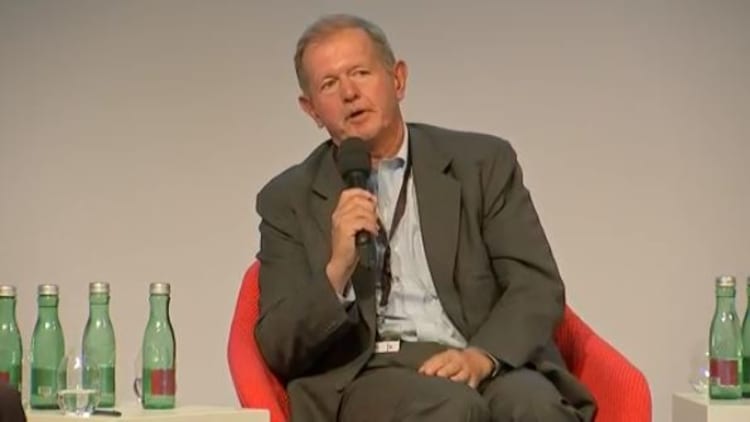
The U.S.-China trade conflict is leading the world toward a "very bad situation," and Europe should invest in technological innovation to prepare for further division, Swedish billionaire Marcus Wallenberg said Friday.
Speaking at the Salzburg Summit in Austria, Wallenberg — a fifth-generation member of the Wallenberg dynasty — said the Sino-U.S. trade war was "extremely unfortunate."
"It's obvious that the big powers, China and the United States, look upon the rulebook in a very different way," he told CNBC's Geoff Cutmore at the event.
"All history tells us is that protectionism will lead nowhere and usually into a very, very bad situation, and unfortunately I think what we're seeing right now is actually going completely in the wrong direction."
The Wallenberg family's business empire includes holdings in AstraZeneca, Ericsson, Saab and Nasdaq, and is worth 250 billion euros ($278 billion), according to the Financial Times.
Marcus Wallenberg himself is the chair of private banking group SEB, as well as being the chair of asset manager FAM and the director of pharmaceutical giant AstraZeneca's board.
He told CNBC Friday that the delay in finding a resolution to the trade conflict was "not only one side's fault."
"The trade relationship between the U.S. and China is immensely important for both sides, so hopefully they will come to a position where they actually really try to save it," Wallenberg said.
What was worrisome, he added, was that even though both nations were trying to solve the situation, big questions remained around the future of their trading relationship.
"China is a country that has lived in their thought process and their policies for decades, (whereas) the U.S. and Western Europe turn around their political situation every four or five years," he said. "It's a very different game that we're seeing."
Technological split
Much of the uncertainty also came from new technologies and how they would impact the way we do business, Wallenberger told CNBC.
"Are we going to see a bifurcated world in terms of technology going forward? Some people say we're already there," he said.
Wallenberger noted that his family – which is a large owner of Swedish telecommunications company Ericsson – had learned that attempting to have several different standards on telecommunications was not economical.
"We brought telecoms to the point where it is today because we've been able to agree on the basis for the technology, (but) are you going to see that in the future? (That's a) big question," he said.
The phenomenon of the internet becoming divided to cater for different regions — dubbed the "splinternet" — has been flagged by some experts as a real possibility in the future.
But Wallenberger said if a rift in the tech sector appeared, he was unsure which side Europe would stand on.
"If you look at robotics, if you look at AI, if you look at all these new technologies we'll be using in the future we will completely depend on secure communication, so it's a real issue," he said. "It's quite evident that European governments have been trying to balance between (China and the U.S.) and not side with one of these opponents. I think it's unreasonable at this point in time to think that we will know which side Europe will go on."
He added that the potential of a technological divide should give Europe "further incentive to really invest into the future so we can stand more on our own legs."
"We cannot (ignore) the fact that if you look at Germany or other major economic powers in Europe, we're very dependent on the Chinese market as well as the American market," he said.


